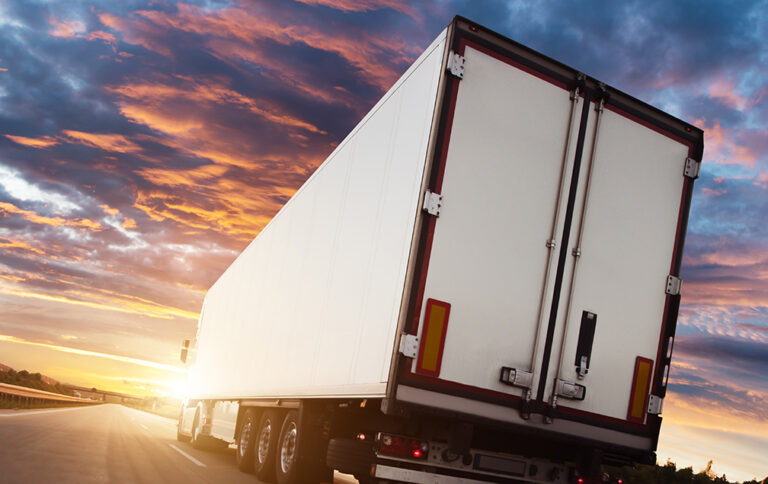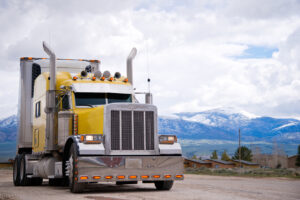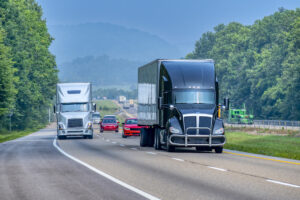If you’re considering the purchase of your own trailer, the first question to ask yourself — and answer with total honesty — is: Why?
The second question: Does owning your own trailer help or harm your business?
If you’re running under your own authority, you may have no choice. Depending on the customer, you’ll need a tractor and a trailer to make the business work (unless the customer has trailers of their own).
If you lease your tractor to a carrier or your business serves a customer that provides trailers, consider carefully before you make a deal to purchase your own.
Advantages of owning a trailer can add up quickly. You can spec exactly the equipment needed for the work your customers provide. You can customize your trailer’s looks to help build the brand you chose for your company, including as many lights as you want to install or have installed.
If you lease your equipment to a carrier, owning a trailer may bring higher revenues, or at least keep you from having to pay rental fees to a carrier to use their trailer. Also, you can take advantage of the latest aerodynamic features that help reduce your fuel cost.
However, trailers also come with problems, including acquisition and maintenance costs. Consider carefully whether revenues will increase enough to cover the cost of the trailer plus the maintenance dollars you’ll spend. During this time of shortages, trailers are hard to find, and good deals are nearly impossible.
Don’t forget to factor in financing costs if you plan to borrow to pay for your trailer. Those costs include any aerodynamic features you add, such as side fairings, rear-end spoilers, or tails or wheel treatments.
If your customer (or the carrier you lease to) demands special paint colors or brand decaling, find out if the costs are your responsibility.
Your insurance costs may rise, too. Check with your agent for the cost of all of your policies. You may need to carry physical damage insurance on the trailer, especially if you financed the purchase. Other insurance, such as liability or even “bobtail,” which provides coverage when the trailer is empty, may be necessary.
There are registration costs as well. States differ on costs, and some charge ad valorem (property) tax on owned trailers. You’ll need to factor in those costs.
You’ll need to adjust your business plan to account for more maintenance cost. Trailers are normally less expensive to maintain than a tractor, since there’s no engine or transmission to fix, but they still have tires and brakes — two expensive maintenance items.
If your trailer includes a refrigeration unit, it DOES include a motor and other parts that will need to be maintained. You’ll need oil changes and other preventive maintenance in addition to any repairs.
Some trailer owners save money by recapping used steer tires and using them on the trailer, sometimes following the process with drive tires. Every driver and trailer situation is different.
There is also an air system on the trailer, from gladhands to storage tanks and all the lines and valves in the system. The dual lines to sliding tandems are often a problem. If the spring is connected improperly, it will fail to take up the slack when the tandems are slid forward, allowing the lines to drag the ground. Even when properly adjusted, the lines can rub against one another, eventually resulting in failure of the hose if not caught during an inspection.
There are other drawbacks to owning your own trailer, too. Many carriers operate with trailer “pools,” allowing drivers to drop their trailer at a customer location and pick up another that has been pre-loaded by the customer. This saves the driver from waiting at the dock for trailers to be unloaded and reloaded. Obviously, if you own the trailer, that’s not an option. Plan to wait for loading and unloading.
Securement equipment can be another issue with owning a trailer. At some dry van or refrigerated deliveries, unloading personnel — including lumpers — sometimes remove load locks or straps and place them in a “community area” where you’re expected to retrieve them. Unfortunately, some drivers “retrieve” the newest or best-looking equipment, leaving the worst behind.
The problem isn’t as common for straps, chains and other securement equipment, but you’ll still need to keep track of everything. You’ll also have the expense of replacing equipment as it wears beyond its useful life, including tarps.
Repairs on the road may be more expensive, too. When you’re pulling a carrier’s trailer, you can often call in to report needed repairs, such as a service call for a flat tire. With your own trailer, and depending on the carrier’s policy, you may be responsible for finding and paying for any needed service calls.
Of course, any violations identified in a DOT inspection, and the cost of any citations issued, will also be yours.
You’ll also need to consider parking. Some drivers are blessed with ample space to park a tractor and trailer. Others, such as those who live in areas where truck parking isn’t allowed on the street, leave the trailer at a terminal or at a convenient location, such as that abandoned shopping strip down the road, and drive the tractor home. When you own a trailer, you’ll need a plan to keep both tractor and trailer secure.
Depending on the characteristics of your home, you may find you need to rent parking space at a nearby truck stop or other business.
All costs associated with trailer ownership must be dealt with before you can determine the financial impact of buying that equipment. If it will cost more to own the trailer than you’ll earn in additional revenues, it’ll be a poor investment.
Owning your own trailer can be a characteristic of a truly independent business, but it’s important to remember that independence often means more responsibility and cost.
Cliff Abbott is an experienced commercial vehicle driver and owner-operator who still holds a CDL in his home state of Alabama. In nearly 40 years in trucking, he’s been an instructor and trainer and has managed safety and recruiting operations for several carriers. Having never lost his love of the road, Cliff has written a book and hundreds of songs and has been writing for The Trucker for more than a decade.















Thanks for pointing out how owning a trailer allows the owner to customize the trailer’s appearance to help build the brand. I’m not sure what the boss plans for the trailer, but he does plan on buying one. If it helps build a brand name, it might be worth it, especially since the business is new. https://www.sparks.com.au/